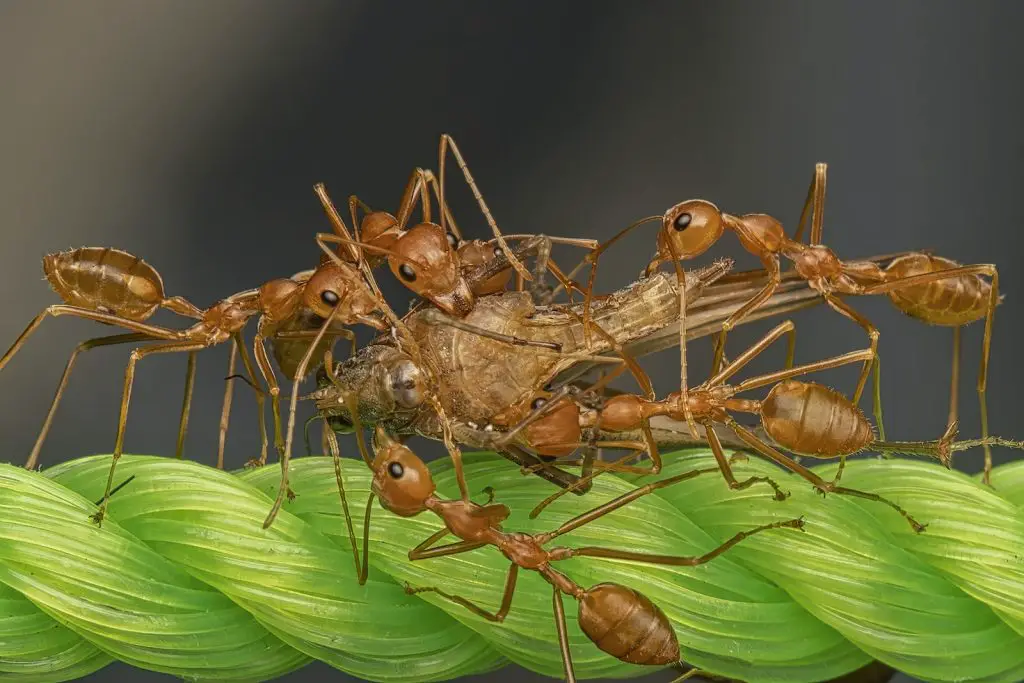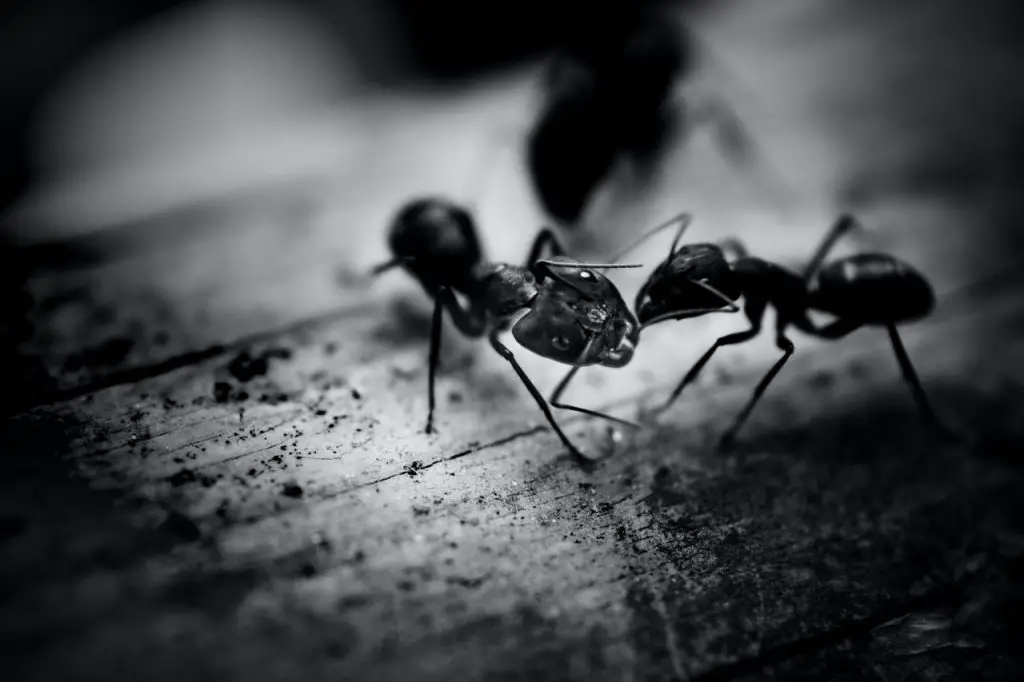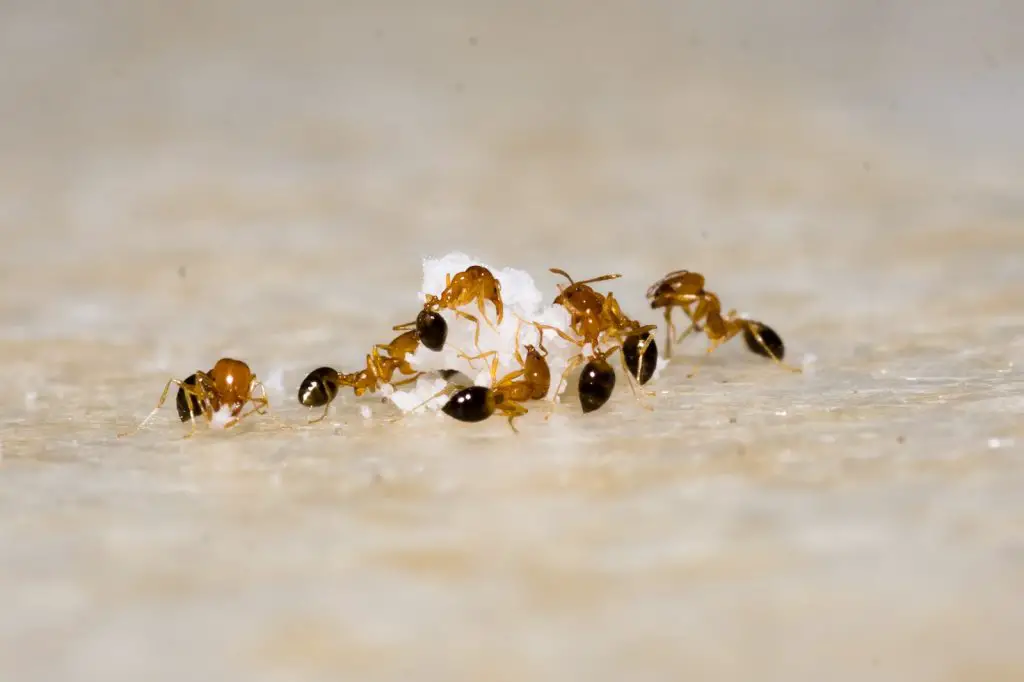Are you tired of battling pesky ants and wasps invading your home?
Before you grab that can of ant killer to take care of both pests at once, it’s important to consider whether or not it will actually work.
To provide you with accurate and reliable information, we’ve researched will ant killer kill wasps.
The same ant killer you use to get rid of pesky ants in your home might also be effective against wasps.
Before you spray, read on to find out if this common household remedy is truly effective or if it’s just a myth.
Can Your Ant Killer Take Down a Wasp Infestation?
Ant killers can kill wasps, their effectiveness may vary depending on the type of ant killer and the species of wasp.
Some ant killers contain ingredients like pyrethroids, which can be toxic to wasps and other insects upon contact. However, the concentration of the active ingredient and the mode of delivery may impact its effectiveness against wasps.
It’s also important to consider the specific species of wasp you’re dealing with. Some species may be more resistant to certain insecticides, making them harder to kill with ant killers.
In addition, wasps can be aggressive and may attack when threatened, making it important to exercise caution when using ant killer to control a wasp infestation.
Beat ants and wasps naturally with powerful ingredients
Vinegar: A mixture of equal parts vinegar and water can be used to spray ants and wasps. The acetic acid in the vinegar disrupts their sense of smell, making it harder for them to navigate.
Peppermint oil: Ants and wasps are repelled by the strong scent of peppermint oil. A few drops of peppermint oil on cotton balls or in a spray bottle with water can be used to deter them.
Lemon juice: The citric acid in lemon juice can be used to kill ants and wasps. Simply squeeze some fresh lemon juice on areas where they are present, or mix lemon juice with water in a spray bottle.
Diatomaceous earth: This is a natural substance made from fossilized algae. It can be sprinkled around areas where ants and wasps are present and will work to dehydrate and kill them.
Borax: Boric acid mixed with water and sugar creates a bait that attracts ants and wasps. Consuming the bait will result in a slow death for the pests, making it an effective ant killer that will also kill wasps.
Baking soda and powdered sugar: You can use a mixture of equal parts baking soda and powdered sugar to attract and kill ants and wasps. The sugar attracts them, and the baking soda disrupts their digestive system.
Cinnamon: Sprinkling cinnamon powder near ant trails or around areas where wasps are present can help deter them. Cinnamon contains cinnamic acid, which is toxic to insects.
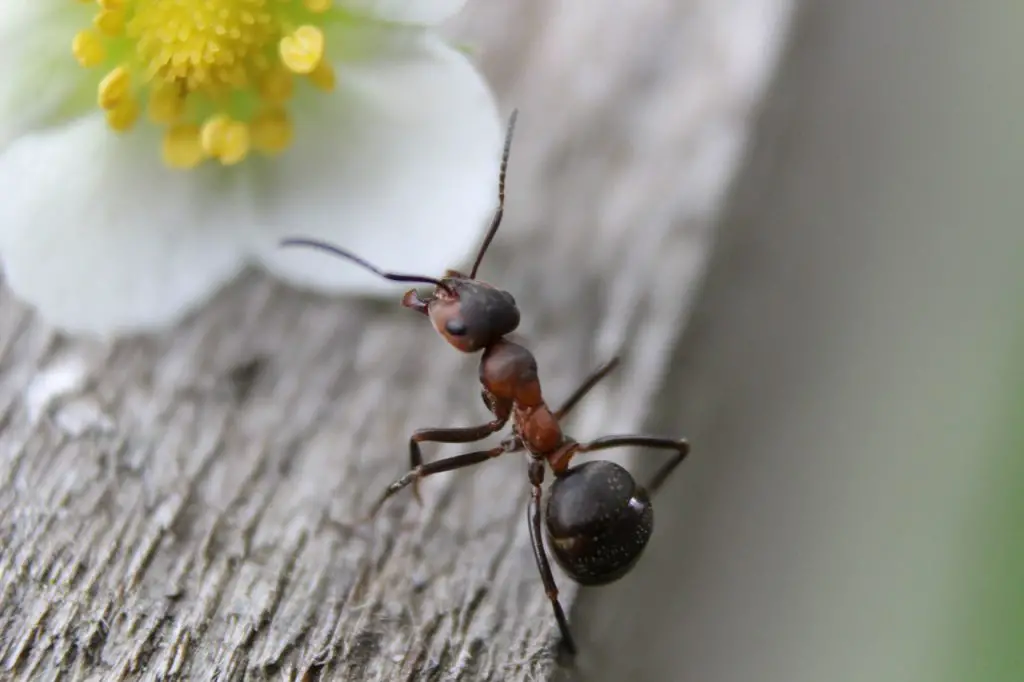
Soapy water: You can use a mixture of water and liquid dish soap to kill ants and wasps. The soap acts as a surfactant, breaking down their exoskeletons and causing them to dehydrate.
Essential oils: Some essential oils, such as tea tree oil, eucalyptus oil, and clove oil, can be effective at repelling ants and wasps. Mix a few drops of the oil with water in a spray bottle and apply to areas where they are present.
Citrus peels: The strong scent of citrus can deter ants and wasps. Place citrus peels, such as orange or lemon, near ant trails or around areas where wasps are present.
From Ants to Wasps: Conquer All Your Pest Problems with These Mighty Chemicals
There are a few chemicals that can be effective at killing both ants and wasps:
- One of the most commonly used is boric acid. It works by disrupting the nervous system of insects, leading to their eventual death.
Boric acid mixed with water and sugar creates a bait that attracts ants and wasps. Consuming the bait will result in a slow death for the pests.
- Diatomaceous earth, a powder made from fossilized remains of tiny aquatic organisms, is another effective solution that can kill both ants and wasps.
When insects come into contact with diatomaceous earth, it absorbs their protective oils and causes them to dry out and die.
- Pyrethroids are another class of chemicals that can be effective against both ants and wasps. Commercial insecticides often contain these compounds, as they attack the nervous system of insects.
It’s important to use caution when using pyrethroids as they can also be toxic to humans and pets.
Wasp Wars: Which Types Are Resistant to Ant Killers?
Ant killers can be effective against ants, but they may not be as effective against certain species of wasps.
Certain stubborn species of wasps, here you go:
- European hornets – These large wasps build nests in tree hollows, wall voids, and attics, making them difficult to access. European hornets’ nests can also be quite large, with thousands of wasps present.
- Yellow jackets – These wasps build their nests in the ground or in wall voids and can be aggressive when provoked. Yellow jacket nests can also be difficult to locate and eliminate, especially if they are hidden behind walls or underground.
- Paper wasps – These paper wasps build their nests in sheltered locations, such as under eaves, in attics, or behind shutters. Their nests can be small and inconspicuous, making them difficult to locate and eliminate.
- Mud daubers – These wasps build their nests out of mud, which can be difficult to access and eliminate. They also tend to build their nests in out-of-the-way locations, such as under eaves or in crawl spaces.
- Cicada killers – These wasps burrow in the ground to create their nests, which can be difficult to locate and eliminate. Cicada killer nests can also be quite large and contain multiple wasps.
Buzz Off: How to Eliminate Wasps From Your Home?
- Locate the nest: The first step in eliminating a wasp infestation is to locate the nest. You can follow the flight path of the wasps or search for visible signs of a nest, such as a paper-like structure under eaves or in tree branches.
- Use insecticides: Once you have located the nest, you can use insecticides specifically designed for wasps to eliminate them. To avoid getting stung, follow the instructions carefully and wear protective clothing
- Use traps: You can also use traps to lure wasps away from high-traffic areas. You can make traps from a plastic bottle filled with sugary liquid or purchase them from a hardware or garden store.
- Seal off entry points: Wasps can enter your home or property through small cracks and crevices. Seal off any openings with caulk or weatherstripping to prevent them from entering.
- Vacuum the nest: If the nest is small and accessible, you can use a vacuum cleaner to suck up the wasps and nest. Use a vacuum with a long hose attachment and wear protective clothing to avoid getting stung.
- Smoke the nest: Smoking the nest can also be an effective way to eliminate wasps. Use a smoker or a bundle of burning herbs or paper to create smoke around the nest, which will cause the wasps to flee.
- Hang decoys: Wasps are territorial and will avoid areas where other wasp nests are present. Hang up fake wasp nests or decoys in high-traffic areas to deter wasps from nesting in the area.
Will Raid Ant Killer Kill Wasps?
Raid Ant Killer can kill wasps as well. The active ingredient in Raid Ant Killer is also effective against wasps.
Raid Ant Killer typically contains one or more active ingredients that are effective in killing ants. These include chemicals such as Imiprothrin, Cypermethrin, Prallethrin, and Lambda-cyhalothrin.
Note that Raid Ant Killer is primarily designed to target ants and may not be as effective against certain types of wasps.
If you have a wasp problem, it’s best to use a product specifically designed for wasps, such as Raid Wasp & Hornet Killer.
Conclusion
The blog discusses the effectiveness of ant killers in killing wasps.
The blog points out that ant killers can be effective in killing wasps, but their effectiveness varies depending on the type of ant killer and the species of wasps.
You can use natural ingredients like vinegar, peppermint oil, lemon juice, and more to deter or kill wasps.
Some chemicals can be effective against both ants and wasps, including boric acid, diatomaceous earth, and pyrethroids.
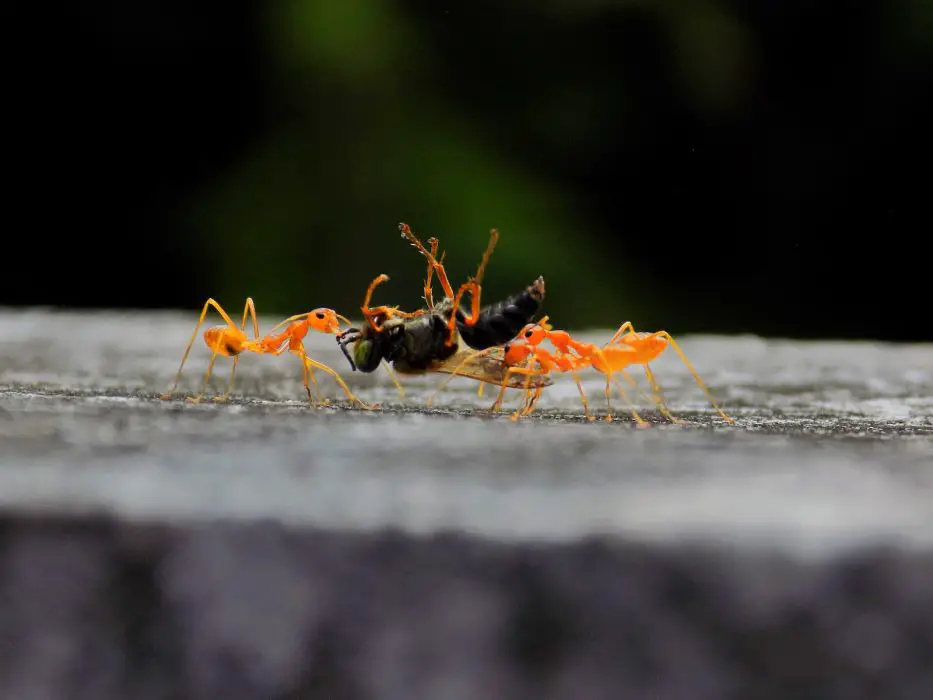
Several wasp species are resistant to ant killers, including European hornets, yellow jackets, paper wasps, and mud daubers.

